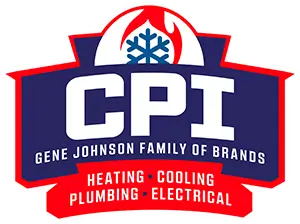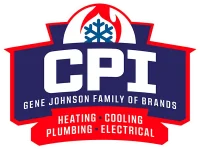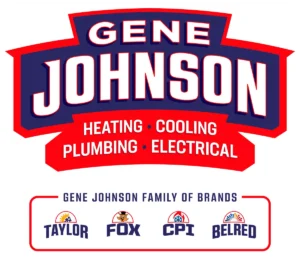Can a Heat Pump Replace My Furnace and AC?
With climate change and energy efficiency at the forefront of modern concerns, homeowners are constantly seeking ways to cut costs and reduce their carbon footprint.
The trusty heat pump could be an important part of this equation. But can a heat pump replace a traditional furnace and air conditioner?
This article aims to provide a comprehensive understanding of heat pumps, furnaces, and air conditioners and to determine whether a heat pump is a viable replacement.
If you need more help figuring out the appropriate solution for your home, don’t hesitate to reach out. Call us at (360) 822-9306 to book an appointment.
Understanding Heat Pumps
A heat pump might be a bit of a misnomer because it does more than just heating. It’s a device that can provide both heating and cooling by moving heat from one place to another.
But how exactly does a heat pump work?
During winter, the heat pump extracts heat from the outside air and pumps it inside to warm your home. In the summer, it does the reverse, acting like an air conditioner by removing heat from your home and releasing it outdoors.
Advantages of Heat Pumps
Heat pumps come with a host of advantages for homeowners, such as:
Energy Efficiency
Heat pumps are known for their superior energy efficiency. They work by moving heat from one place to another, rather than burning fuel to generate heat. This operation makes them more energy-efficient than traditional furnaces and air conditioners.
Dual Functionality
A significant advantage of heat pumps is their dual functionality. They can both heat and cool your home, thereby replacing the need for a separate furnace and air conditioner. This dual functionality simplifies your home’s HVAC system and could save you considerable space and costs.
Environmentally Friendly
Given that heat pumps use electricity and don’t rely on combustion processes, they’re a greener alternative to traditional heating methods. They don’t produce carbon monoxide or other harmful greenhouse gasses, making them a good choice for environmentally conscious consumers.
Long Lifespan and Low Maintenance
Heat pumps are known for their durability and typically require less maintenance than furnaces and air conditioners. A well-maintained heat pump can last up to 15 years or more, making them a worthy long-term investment.
Disadvantages of Heat Pumps
Although heat pumps are undeniably beneficial to most, it doesn’t come without its own drawbacks:
High Initial Costs
One of the main disadvantages of heat pumps is their high upfront costs. The installation of a heat pump system tends to be more expensive than traditional HVAC systems. However, these costs can be offset by lower operating costs and energy savings over time.
Performance in Extreme Cold
While heat pumps can operate effectively in most climates, their performance can drop in areas with extremely low temperatures. In very cold weather, heat pumps may struggle to extract enough heat from the outside air to warm your home efficiently. In such cases, a supplemental heating system may be needed.
Requires Professional Installation
Heat pumps need to be correctly sized and professionally installed to ensure optimal efficiency and performance. This need for professional installation can add to the initial investment.
Potential for Higher Electricity Bills
While heat pumps are more energy-efficient than traditional heating and cooling systems, they still require electricity to operate. In areas where electricity prices are high, this could lead to higher utility bills compared to gas-based heating systems.
Understanding Furnaces
A furnace is a traditional heating system that uses combustion to generate warmth for your home. While it doesn’t provide cooling solutions like the heat pump, its high heating capacity has made it a go-to choice for colder climates.
A furnace works by consuming a fuel source, such as natural gas, oil, or electricity, to produce heat. This heat is then disseminated throughout your home via a network of ducts, creating a warm and comfortable indoor environment during colder months.
Advantages of Furnaces
Furnaces come with several advantages that make them a popular choice for homeowners in colder climates:
Powerful Heating Capacity
Furnaces are known to produce a substantial amount of heat, ensuring that your home remains warm even during the coldest months of the year. They can swiftly boost the inside temperature to a reasonable level, providing you and your family with a pleasant atmosphere.
Reliability
Furnaces have a track record of dependability. A well-maintained furnace can deliver continuous heating for many years with routine care and upkeep. This dependability is especially vital during the hard winters.
Independence from Outdoor Temperature
Unlike heat pumps, furnaces are not affected by the outside temperature. They can reliably deliver warmth regardless of the ambient conditions, making them ideal for extremely cold settings.
Disadvantages of Furnaces
While furnaces offer powerful heating capabilities, they also have some limitations to consider:
Limited Functionality
Unfortunately, furnaces don’t offer cooling functions the same way heat pumps do. This implies you’ll need a separate air conditioning system to keep your house cool during the summer. Having two different systems can increase upfront expenses and maintenance requirements.
Environmental Impact
Furnaces that use fossil fuels, such as petroleum or natural gas furnaces, emit greenhouse gasses. This can contribute to environmental damage and global warming.
Ductwork Required
Furnaces require a network of ducts to distribute heated air throughout your home. If your property doesn’t have existing ductwork, the installation of a furnace may involve additional costs for ductwork installation or retrofitting.
Safety Concerns
Carbon monoxide leaks can occur in fuel-burning furnaces if they aren’t regularly serviced or vented. Routine inspections, maintenance, and the installation of carbon monoxide sensors are required to maintain the safe operation of a furnace and the safety of the home’s occupants.
Consulting with a professional HVAC technician can provide valuable insights and help you make an informed decision.
For more information and assistance, please feel free to contact us at (360) 822-9306 today.
Understanding Air Conditioners
Air conditioners work by manipulating the physical properties of gasses to absorb heat and remove it from an indoor space, resulting in cooler air.
They do this via a cycle of compression, condensation, expansion, and evaporation.
When the AC is on, the refrigerant absorbs the heat from inside the room and releases it outdoors, thus cooling the inside space.
Advantages of Air Conditioners
When it comes to cooling, air conditioners are often a great choice. They offer various benefits to homeowners, including:
Comfortable Environment
The primary advantage of an air conditioner is that it provides a comfortable environment by reducing the temperature and humidity levels. During hot summer months, air conditioners can transform your home or office into a cool oasis, making it easier to sleep, work, or simply relax.
Better Air Quality
Air conditioners filter the air circulating in your space. This process reduces the amount of dust, allergens, and pollutants in the air, which can significantly improve indoor air quality. This feature can be especially beneficial for individuals suffering from allergies or respiratory issues.
Disadvantages of Air Conditioners
Regardless of their advantages, air conditioners still have a few drawbacks that you should know about:
High Energy Consumption
Air conditioners use a significant amount of energy, especially when cooling large spaces or combating extreme heat. This high energy consumption can lead to expensive utility bills, particularly during the summer months.
Maintenance and Repairs
Like all appliances, air conditioners require regular maintenance to run efficiently. Neglecting to clean or replace filters, for example, can decrease the performance of your unit. In addition, repairs can be costly if a component of the unit breaks down.
Environmental Impact
The high energy consumption of air conditioners also leads to a larger carbon footprint. Moreover, some air conditioners use refrigerants that, if not properly managed or disposed of, can contribute to global warming.
So, Can a Heat Pump Replace Your Furnace and AC?
Well, the answer is, it depends.
If you live in a moderate climate and are concerned about energy efficiency, a heat pump can be an excellent choice. Its dual functionality provides both heating and cooling from one unit, reducing your carbon footprint and potentially saving on energy costs.
On the other hand, if you live in a region with extremely cold winters, a furnace could be your best bet due to its superior heating capacity. However, remember that you’ll need to install an air conditioner for summer cooling.
The key here is to consider your specific circumstances and local climate. A heat pump can be a powerful, energy-efficient, and environmentally friendly solution, but it’s not a one-size-fits-all answer. It’s all about finding the right fit for you and your home.
Accessible Professional Heating and Cooling Services
The right heating or cooling system for you will ultimately depend on your specific needs, your climate, and your budget. Consulting with a professional HVAC technician can provide valuable insights and help you make an informed decision.
Contact us at (360) 822-9306 to book an appointment with our experienced team of professionals today. Learn more about our heat pump installation and repair services or avail of our other offers.


